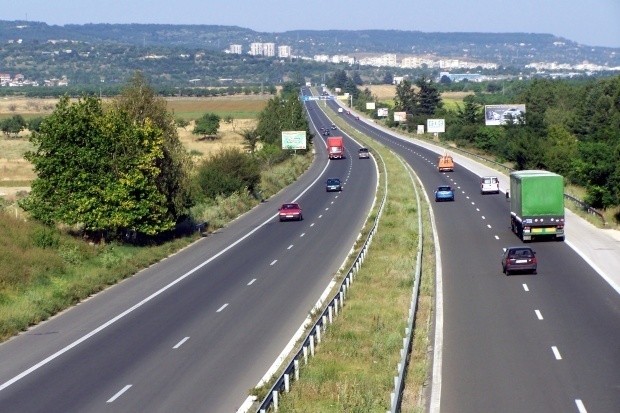11:45 pm, October 8, 2022
Forty-nine years after the first oil shock, a multi-energy shock threatens the European Union. Oil, gas and electricity are seeing their costs skyrocket under the effect of a perfect storm, combining the aftermath of the pandemic, the consequences of the war in Ukraine – shortages, inflation and recession – and the imperatives of the energy transition. While sales of thermal motor vehicles will be banned from 2035 in the EU and their circulation banned in 2050, a survey published exclusively in the JDD reveals the concern of the poorest households, when the increase in fuel prices has reached 33. , 54% since the beginning of the year.
Essence
The queues in front of gas stations will continue. Because strike movements in several refineries and fuel depots were renewed yesterday at TotalEnergies (which operates nearly a third of France’s 11,000 service stations) and ExxonMobil, according to the CGT. On Saturday, three of the six French refineries remained closed: the largest of TotalEnergies, in Normandy, as well as the two operated by the American Esso-ExxonMobil, where the strike rate is estimated at almost 70% – and 100% at the TotalEnergies refinery in Feyzin, in the Rhône. The strikers are demanding a 10% wage increase and a thaw in hiring. These blockages lead to a drop in fuel deliveries and a shortage of supplies at service stations. If Emmanuel Macron calls motorists to calm and fatten groups to “responsibility”, improvement is not expected for several days.
Read also – SURVEY. Low-emission zone: 42% of French people will continue to use their cars despite the ban
At the same time, and to a lesser extent to employees and consumers, two earthquakes occurred in ten days. The first, within the EU itself, was Germany’s unilateral decision to create a “defense shield” to resist the price surge, as Berlin is heavily dependent on Russian gas exports. This massive subsidy of 200 billion euros (compared to 67 billion invested by France and 68 billion by Italy), weakens the unity of the 27. And exposes countries unable to finance such colossal endowments to risks on the markets due to the interest rate differentials.
The epicenter of the second was in Vienna, where the OPEC (Organization of Petroleum Exporting Countries), of which Russia is a member, announced on 5 October the reduction of its production by 2 million barrels per day, or the 2% of the supply, resulting in an increase in prices. It is a deliberate sanction against consumer countries. Including those of the EU – the world’s largest importer of fossil fuels -, while the price per barrel of Brent is already double its long-term historical level, at 90 euros.
Low emission zones
Already indispensable for reasons of public health and environmental protection, the development of low carbon energy is also the best weapon against the explosion of the cost of fossil fuels. But the measures put in place as part of this transition still include binding aspects in the short and medium term. Especially for owners of polluting vehicles.
According to Aramisauto (a company specializing in the online sale of new and used vehicles, subsidiary of the manufacturer Stellantis), which publishes an annual barometer on the car market in France made by OpinionWay, low-income families with a monthly income of less than 2,500 euros net are concerned, or 46% of the assets. The extension of the ZFE (low emission zones) to all agglomerations of 150,000 inhabitants by 2025 implies a ban on the circulation of unclean vehicles. Identified thanks to the Crit’Air cartoons (see explanations on the opposite page), the latter will be banned from Greater Paris, within the perimeter of the A86, from July 2023 for Crit’Air3. In Lyon, Montpellier, Grenoble, Rouen or Strasbourg, the restrictions will extend from criterion 5 to criterion 4 next year.
“
The people most affected by these measures do not have the budget to buy a clean vehicle, despite government aid
“
France, the fourth largest country in the world by number of ZFEs, has 17.5 million vehicles classified as Crit’Air3 or more, representing … 40% of the current car fleet. However, 75% of low-income households surveyed in the Aramisauto-OpinionWay study say they are dependent on their car, with no alternative transport offer for 60% of them, particularly to get to work. And 42%, owners of a Crit’Air4 or 5 vehicle, say they are determined to drive it despite the impending ban. “The study reflects a real gap, believes Romain Boscher, CEO of Aramisauto. The people most affected by these measures do not have the budget to buy a clean vehicle, despite government aid. Because electric cars are on average 50% more expensive than models with a heat engine. “
Electric
While European and French manufacturers have been preparing for the switchover for years and sales are taking off in France (12.1% of the market in the first half of 2022), the scale and speed of change in the European Union continue to favor the China, which already sells one in two electric vehicles worldwide. The order of 100,000 electric cars placed by the German car rental company Sixt from China’s Byrd, with 100,000 more in six years, symbolizes this imbalance in industrial capabilities.
Read also – Fuels: because in November in France the prices of gasoline and diesel will increase
“The prices of Chinese clean vehicles are 30% lower than the prices of European models, underlines François-Xavier Pietri, author of a survey to be published on the subject. And China also holds 80% of the battery market, while it dominates that of rare materials, including lithium and cobalt, necessary for their production. “ So far, no regulatory or technical barriers have been created in this crucial market in the EU. France, whose trade deficit broke a new record in August of € 15.5 billion, is more vulnerable than others to rising imports.


